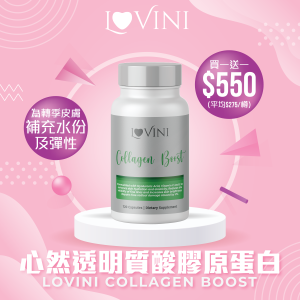Lovini.com, 美肌營養
轉季護膚必看! | 急救乾燥皮膚!
Winter is just around the corner! While we enjoy the chilly weather, it’s essential to take care of our skin, which often tends to become dry and dull during this season. However, there’s no need to worry as we have some incredible tips to combat winter skin dryness and keep your skin radiant and nourished! 💆♀️💦
Water and Collagen are the two key factors to combat winter dryness as Collagen is crucial for skin elasticity and hydration.
Hydration is Key
Make sure you stay hydrated by drinking plenty of water. Hydrated skin is less prone to dryness and wrinkles. Collagen, a protein responsible for skin firmness and structure, relies on water for its synthesis. Hydrated skin provides a conducive environment for collagen production, helping to maintain the skin’s strength and resilience.
How Much Water to Drink Each Day?
The fluid intake recommendation is 30 mL/kg body weight. For example, for a 50kg person, he/she will need 1500mL water/day which is approximately 6.5 cups (1 cup is about 240 ml).

Collagen-Boosting Foods
Include foods rich in vitamins and nutrients in your daily diet can contribute to collagen production and overall skin health.
Fish
Fatty fish like salmon and mackerel are high in omega-3 fatty acids, which support collagen production and help maintain skin elasticity.
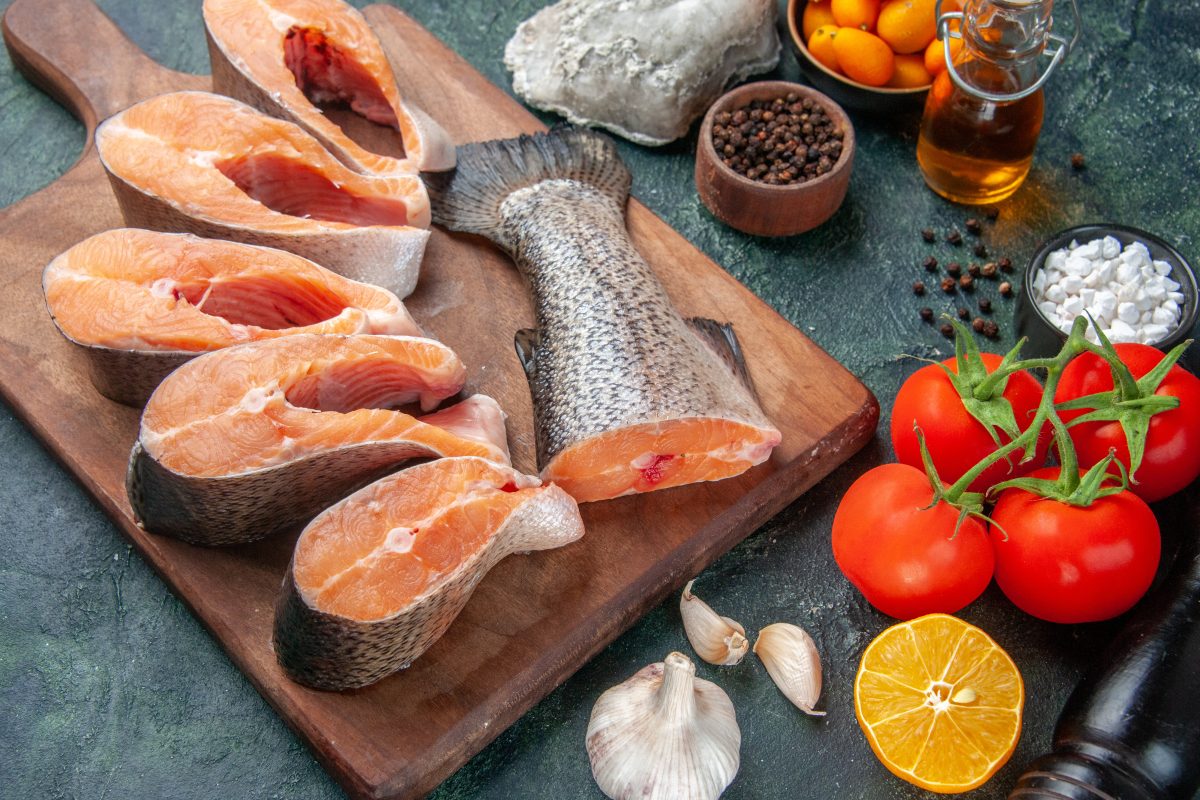
Chicken
Chicken contains collagen and provides amino acids necessary for collagen synthesis. Opt for lean cuts for a healthy protein source.
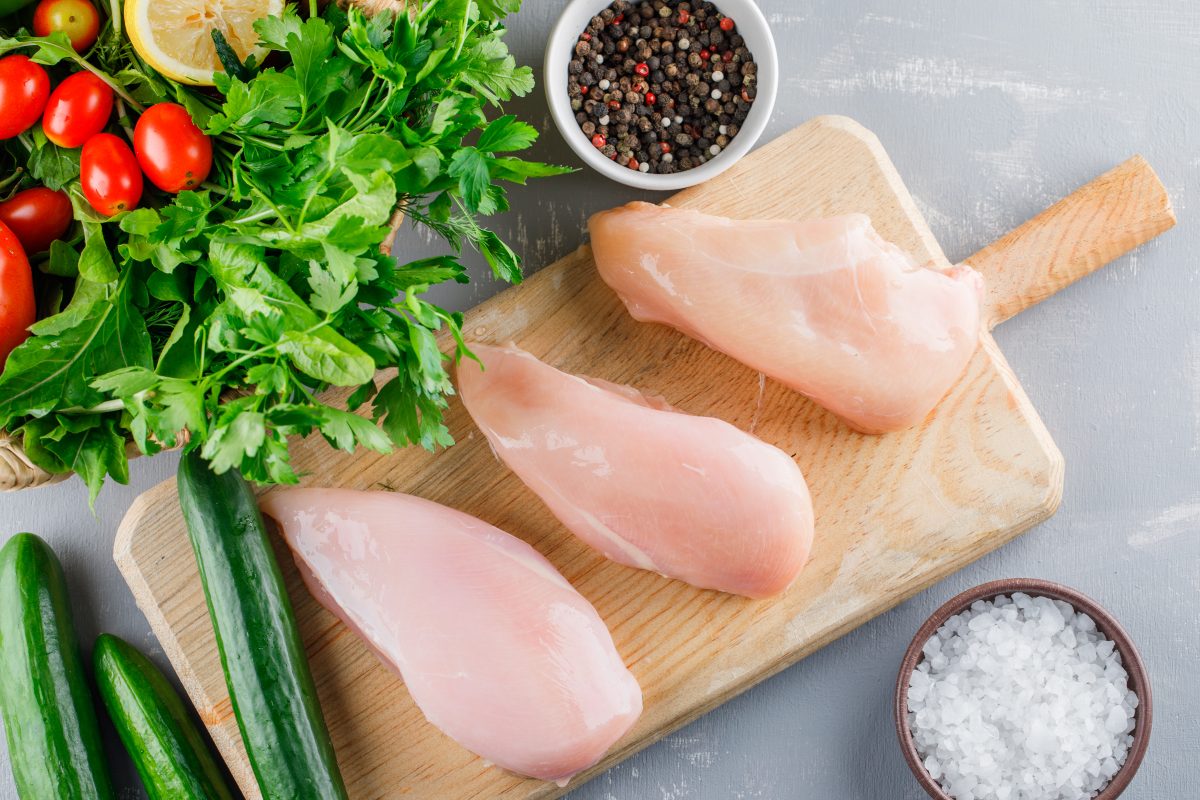
Egg Whites
Egg whites contain proline, an amino acid important for collagen production. IEggs also provide biotin, a B-vitamin that promotes skin health.
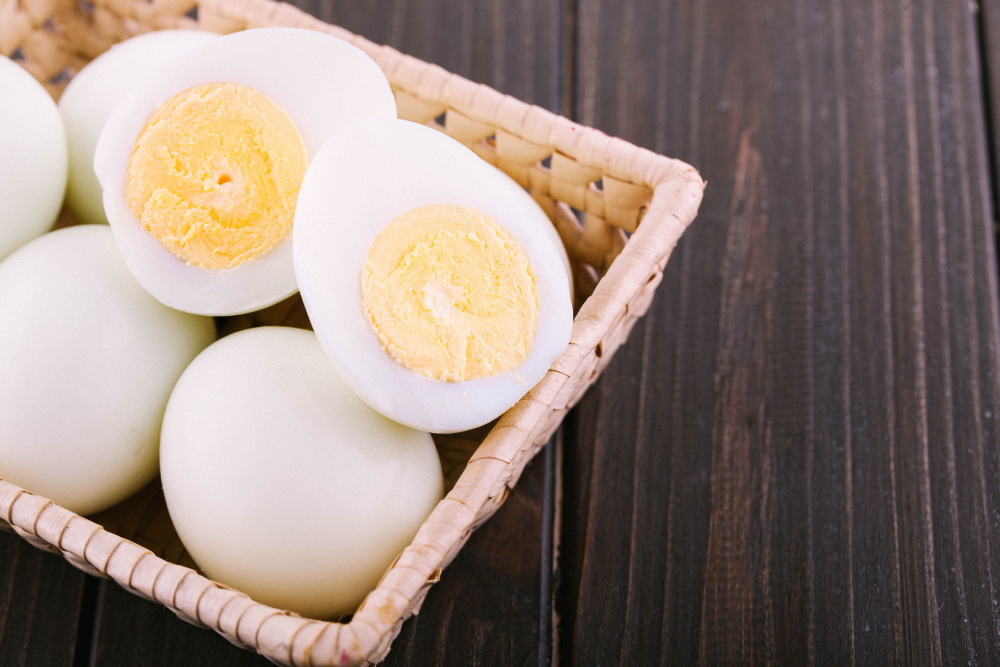
Berries
Blueberries, strawberries, and raspberries are rich in antioxidants that combat oxidative stress, which can contribute to collagen breakdown.
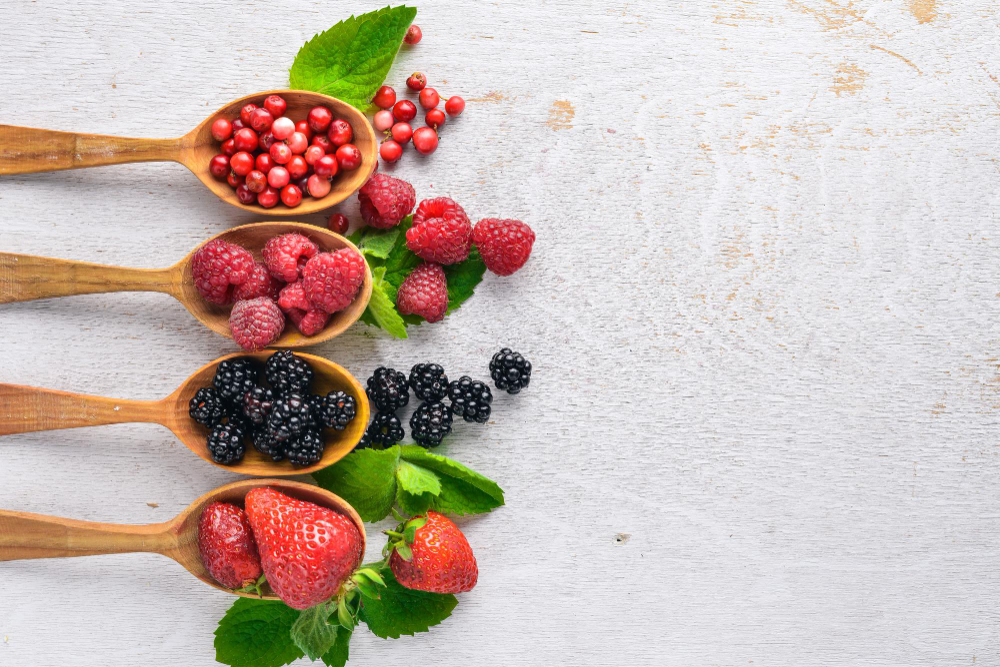
Citrus Fruits
Oranges, lemons, and grapefruits are high in vitamin C, a crucial nutrient for collagen synthesis. Vitamin C promotes the production of collagen fibers.
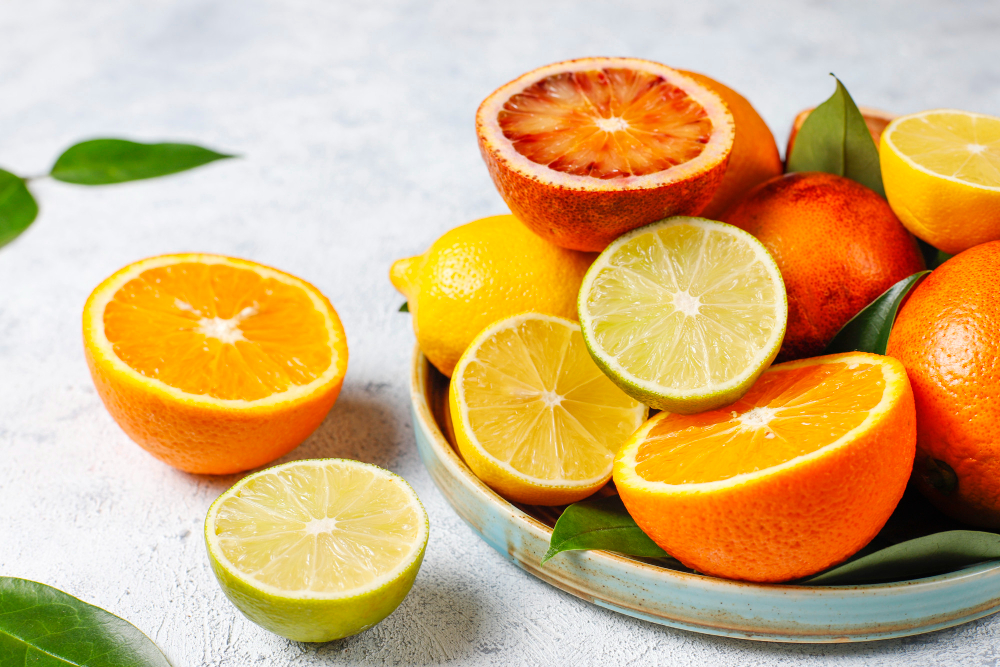
Leafy Greens
Spinach, kale, and other leafy greens contain vitamins and minerals like Vitamin A and copper, which are important for collagen formation.
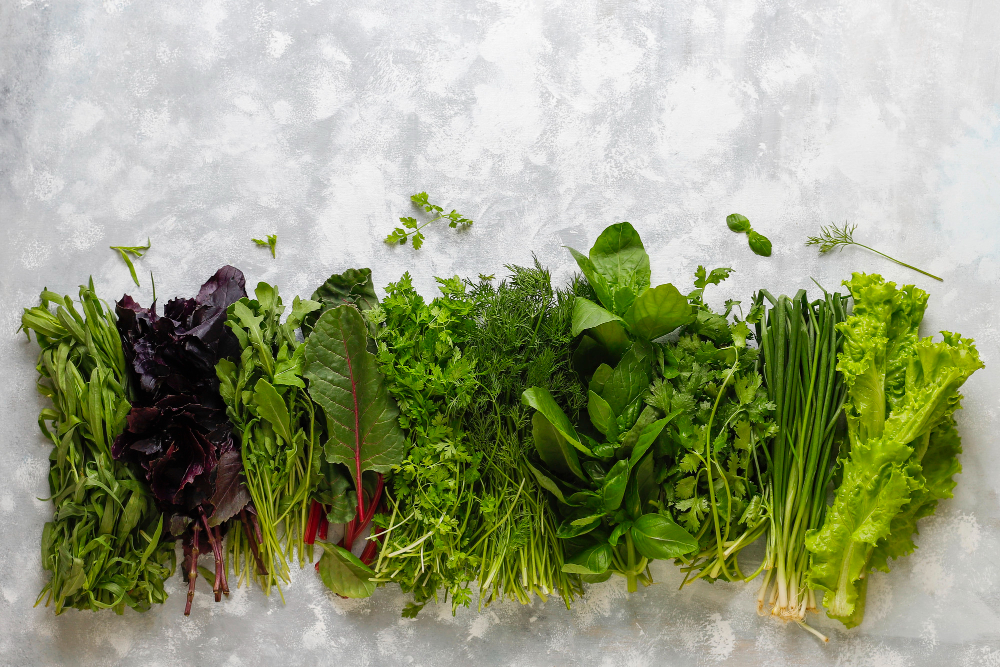
Bell Peppers
Bell peppers are a great source of vitamin C and also contain quercetin, an antioxidant that may help protect collagen.
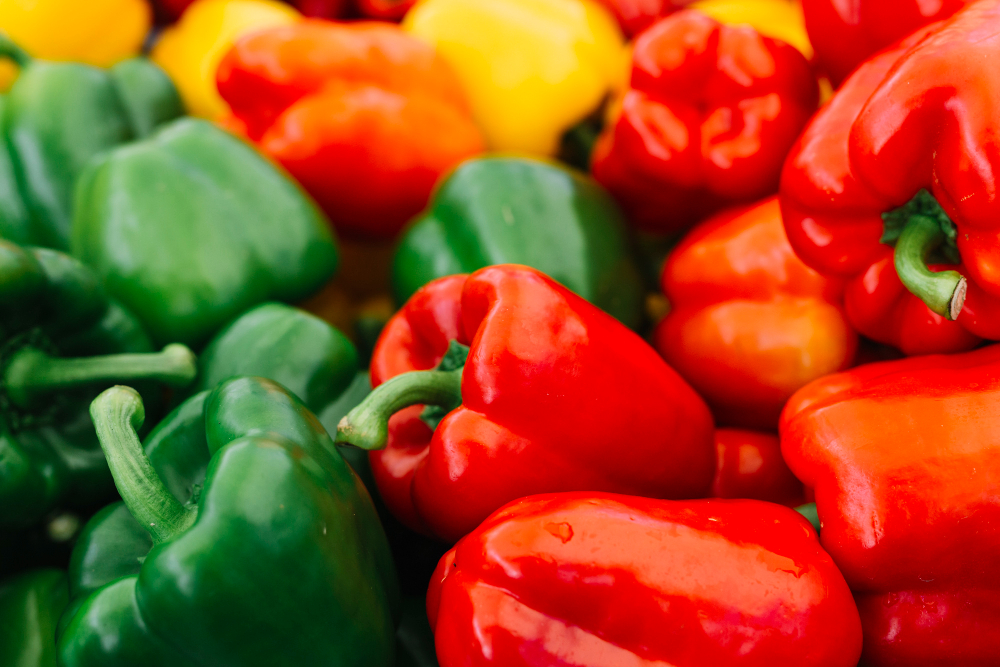
Tomatoes
Tomatoes are rich in lycopene, an antioxidant that contributes to the health of collagen and helps protect the skin from sun damage.
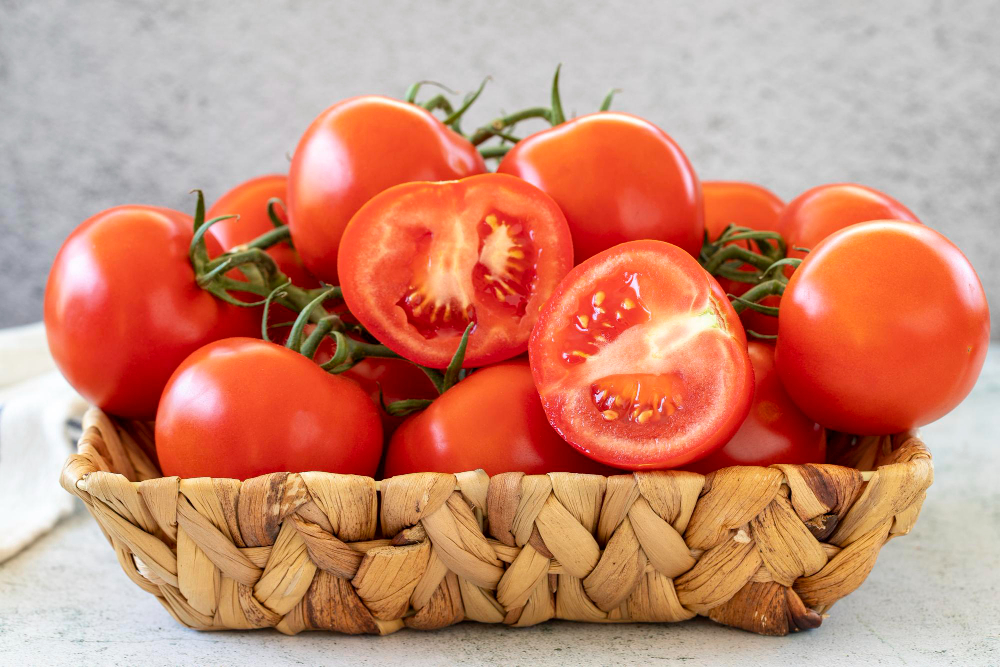
Nuts and Seeds
Almonds, walnuts, flaxseeds, and chia seeds provide essential fatty acids and minerals that support skin health and collagen production.
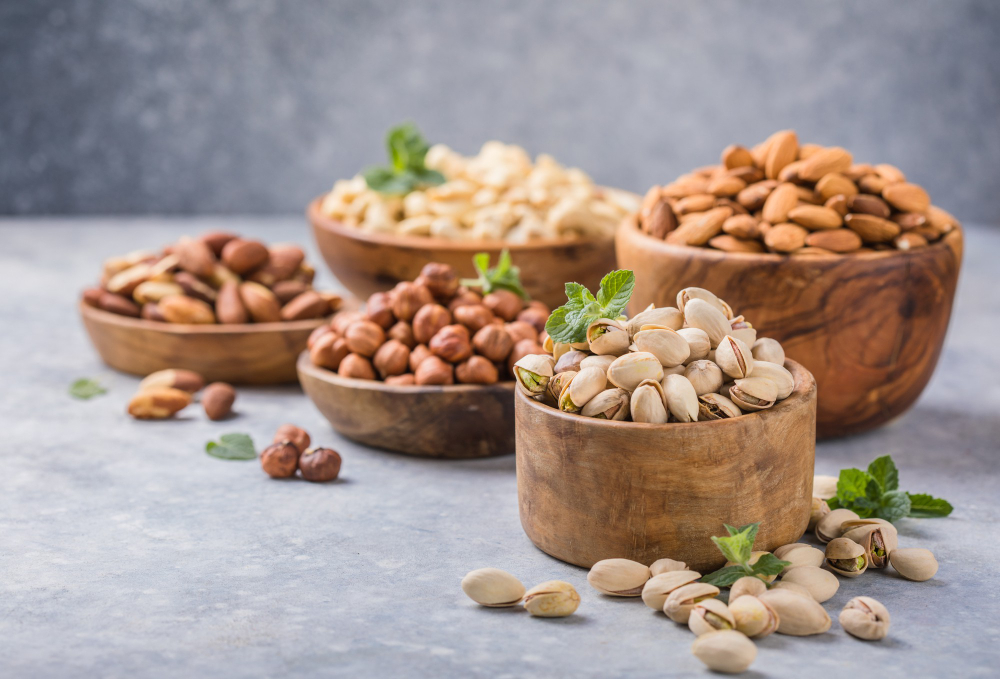
Avocado
Avocado is rich in healthy fats and vitamin E, which promotes skin health and may contribute to collagen maintenance.
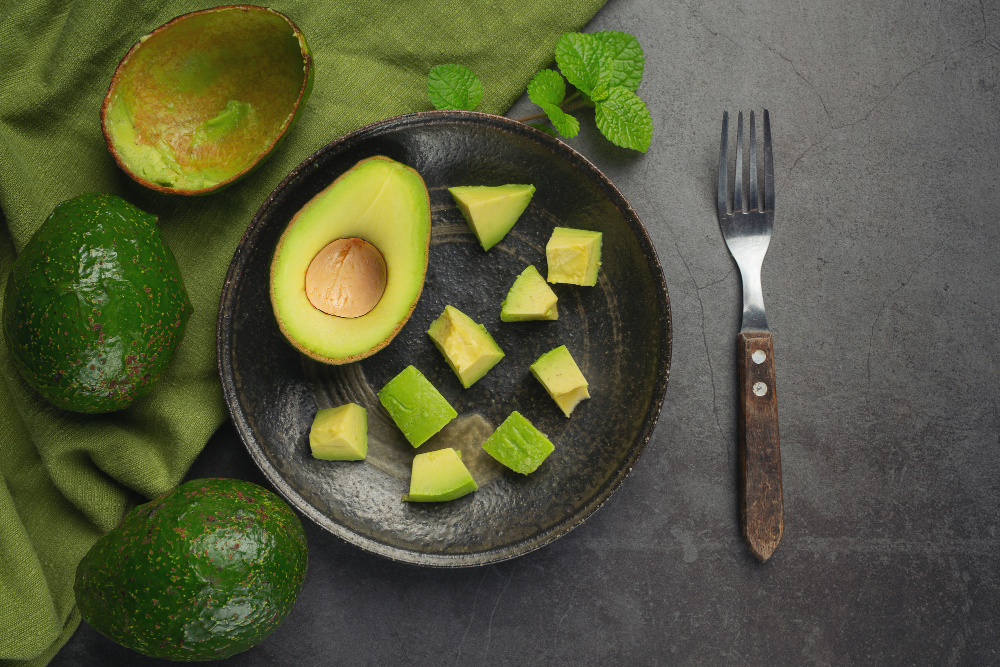
Lovini’s Recommendation
If you have difficult incorporating the above foods in your daily diet, try supplementing your diet with Lovini Collagen Boost! It provides the most abundant protein – Collagen in our body together with other nutrients including Hyaluronic acid, Vitamin C, Vitamin E to enhance skin ability to retain water, keeping collagen moist and elastic with promising result in reducing wrinkles and increasing skin brightness by promoting hyaluronan synthesis in the dermis.
Other Tips
Moisturize Regularly
Moisturizers create a barrier on the skin’s surface, helping to shield it from external aggressors. This barrier function is crucial for maintaining the integrity of collagen, as it protects against environmental factors that can contribute to collagen degradation, such as pollution and UV rays. Use a rich, hydrating moisturizer to combat the dry winter air. Look for products with ingredients like hyaluronic acid, which helps retain moisture.
Protect from the Sun
The damage caused by UV rays is cumulative over time. Even if the exposure is less intense during winter, the effects can add up over the years, leading to premature aging, collagen degradation, and an increased risk of skin cancer. Use a broad-spectrum sunscreen with at least SPF 30 to protect your skin when outdoors.
Stay Active
Certain forms of exercise, particularly strength training and resistance exercises, can stimulate the production of collagen. These activities put stress on the connective tissues, prompting the body to produce more collagen to support the skin, joints, and muscles.
References:
Rinnerhaler M, Bischof J, Streubel MK, Trost A, Richter K. Oxidative Stress in Aging Human Skin. Biomolecules. 2015 Apr 21;5(2):545-89.
Kim DU, Chung HC, Choi J, Sakai Y, Lee BY. Oral intake of low-molecular-weight collagen peptide improves hydration, elasticity, and wrinkling in human skin: a randomized, double-blind, placebo-controlled study. Nutrients. 2018 Jul;10(7):826.
Oba C, Ohara H, Morifuji M, Ito K, Ichikawa S, Kawahata K, Koga J. Collagen hydrolysate intake improves the loss of epidermal barrier function and skin elasticity induced by UVB irradiation in hairless mice. Photodermatol Photoimmunol Photomed. 2013 Aug;29(4):204-11.
Herrero-Fernandez M, Montero-Vilchez T, Diaz-Calvillo P, Romera-Vilchez M, Buendia-Eisman A, Arias-Santiago S. Impact of Water Exposure and Temperature Changes on Skin Barrier Function. J Clin Med. 2022 Jan 7;11(2):298. doi: 10.3390/jcm11020298.
Zdzieblik D, Oesser S, Baumstark MW, Gollhofer A, König D. Collagen peptide supplementation in combination with resistance training improves body composition and increases muscle strength in elderly sarcopenic men: a randomised controlled trial. Br J Nutr. 2015 Oct 28;114(8):1237-45. doi: 10.1017/S0007114515002810. Epub 2015 Sep 10.


